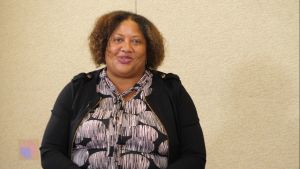When Pedro David Espinoza immigrated to the United States from Peru in 2013, he was one of the thousands of students attending the University of California, Berkeley. While the 18-year-old grew up with entrepreneurial parents, he knew no one at Berkeley or in the San Francisco Bay area.
“A lot of my classmates at Berkeley referred to their uncles, cousins or family members that worked at Google, Apple and Amazon,” Espinoza says. “All my family is in Peru and I had zero networks, venture capital, startups, entrepreneurship or anything because I started 18 years late.”
Through church and sports, Espinoza was determined to make connections and build a network of advisors and supporters. He admits he received a lot of nos and had to get comfortable with rejection. Almost a decade later, Espinoza has a personal board of directors he calls “amazing.”
“The best athletes have coaches,” says the President and CEO of Pan Peru USA, a venture that empowers underserved women to become entrepreneurs. “All the companies and CEOs have boards. There’s no way I would have accomplished anything without a team behind it.”
What is a Personal Board of Directors?
Whether you’re an entry-level worker or a C-level executive, everyone can benefit from professional support and guidance. This is where a personal board of directors comes in.
“Those looking to advance in their career should consider having their own board of directors – a group of trusted advisors who can help you imagine and achieve your career aspirations through insights and wisdom,” says Rae Livingston, Chief Equity Officer at AbbVie (No. 23 on Fair360, formerly DiversityInc’s 2022 Top 50 companies for Diversity list). “They can help you with decisions and actions that are meaningful to where you want to go in your career.”
The role of a board of directors in a company or nonprofit organization is to hold its CEO accountable. In this case, the personal board of directors holds you – the CEO of your career – accountable.
“The goal of that board is to drive the right level of governance,” says Elcio Barcelos, Senior Executive Vice President and Chief Human Resources Officer at US Bank (No. 17 on Fair360, formerly DiversityInc’s 2022 Top 50 companies for Diversity list). “Making sure the right skills are being utilized at the right time. That you have the right level of focus on strategy. That you have the right level of focus on things that matter most for that organization. The organization, in this case, is you as a leader.”
When building a personal board of directors, it’s essential to define your mission. What career path do you want to take? What goals do you want to achieve?
“You have to understand what that purpose and mission is first so that you can surround yourself with individuals that matter,” says Barcelos. “That’s critical. As an example, if one’s intent is to become more digitally savvy in their field, they should have a board member that is digitally savvy or can bring digital into normal human terms on how that applies to day-to-day interaction.”
Who Should Be on Your Board of Directors?
Stephani Mason, Assistant Professor at DePaul University and member of the PhD Project, reflects on the personal board of directors she assembled during her 12-year career on Wall Street in the 1990s.
“I came from a family of teachers, professors and preachers,” she says. “They could give me good advice, but it wasn’t grounded in the reality of the corporate environment that I came from. At the time I came of age, I had to rely on other people to help me make informed decisions.”
Mentors, sponsors, coaches and peers can be on your board of directors, but what makes them different is their purpose.
“People confuse having a board member that is part of your board of directors, as any mentor, buddy or just part of your network,” says Barcelos. “A board is a very small group, a unique group and these individuals are going to help catapult your mission forward.”
Just like a company’s board, your group should be composed of people with diverse perspectives, backgrounds, experiences, disciplines and industries at various levels in their careers.
“These relationships should be mutually beneficial,” says Livingston. “Find people who have been where you want to go as well as those who have traveled different paths on the journey and can help you. The key to all of this is planning. Take the time to understand yourself and the paths you need to take to achieve your goal, then carefully research and take notice of individuals you believe can have the most impact and add the most value.”
The people on your personal board of directors may change over time.
“As you think about your trusted advisors, keep in mind that the seat could be for a season or a lifetime,” says Livingston. “It is important to review your board periodically to ensure it is still working for you. As you grow and develop in your career, it’s important to find new advisors to help address future opportunities.”
Read: Fair360, formerly DiversityInc’s Carolynn Johnson Discusses Psychological Safety with Dow
How to Put Your Board Together
Once you’ve defined your mission, surround yourself with the people that can help you get there. Every member of your board of directors should be invested in your personal and professional success and know why they are on your team.
“If a board member is checking in with me once or twice a year and saying – Hey Elcio, how is Elcio Inc. doing? How are things? Those questions are purposeful,” says Barcelos. “That person knows that they’re a board member of mine. They know that they’re there to help me. They know that I’ve asked them to be a board member. There’s a role that comes with being a board member of accountability, a little bit of governance, intellect, strategy sharing and going from there.”
Recruiting members on your board of directors can be the toughest part of assembling members of your team. Barcelos recommends a focused approach.
“I would love for you to be a board member of mine and here’s why – your strengths, how you coach me, how you help me, how you think of this work as so important, therefore I want to learn from you.”
Once your personal board of directors is assembled, Livingston says it’s essential you prioritize getting feedback.
“Feedback is one of the most powerful tools in your arsenal,” she says. “Seek it early and often, without being overly focused on the one giving the feedback, because whenever you receive feedback, it gives you information. At a minimum, you may learn where there is a misalignment in thinking or actions related to your work, which gives you enough information to take the next step.”
















